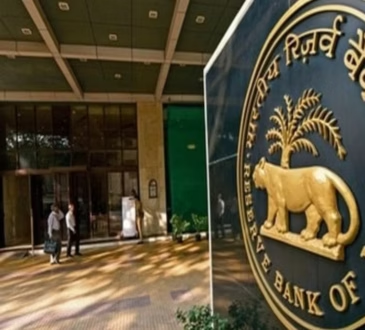Effortless currency conversion and smart budgeting tools have made globetrotting with crypto smoother, safer, and more convenient than ever.

Travel has always been exciting, but managing money while exploring different countries used to be a major headache. Converting BTC to USD before trips and then USD back to local currencies was once complicated and time-consuming.
In 2025, cryptocurrency payment systems have transformed how people handle their finances abroad, making travel budgeting simpler and more convenient than ever before. Currency conversions now happen instantly at fair market rates.
The Evolution of Travel Payments
Before cryptocurrency became widely used for travel, tourists often juggled multiple payment methods – cash in local currencies, credit cards with high foreign transaction fees, and prepaid travel cards that needed constant reloading. Each option had drawbacks: cash could be stolen, cards might be declined, and tracking expenses across different currencies was complicated.
By 2025, integrated cryptocurrency payment systems have addressed many of these challenges. Travelers can now use digital wallets that connect to mainstream payment networks, allowing them to pay directly with cryptocurrency or instantly convert to local currency at the point of sale.
How Today’s System Works
The current cryptocurrency travel payment ecosystem consists of several interconnected elements that work together seamlessly:
- Digital Wallets: Most travellers now use multi-currency digital wallets that store various cryptocurrencies. These wallets connect to smartphones and smartwatches, enabling contactless payments with a simple tap.
- Exchange Rate Protection: Modern travel crypto apps can lock in favourable exchange rates for planned destinations before departure. This helps travellers budget accurately without worrying about sudden currency fluctuations.
- Payment Networks: Major cryptocurrency payment networks now operate globally, with partnership agreements that ensure acceptance at hotels, restaurants, transportation services, and attractions in most tourist destinations.
- Budget Tracking: Integrated expense tracking automatically categorises spending and provides real-time updates on how well travellers are sticking to their planned budgets.
- Offline Capabilities: Even in areas with limited internet connectivity, many crypto payment solutions now offer offline transaction capabilities for essential purchases.
Benefits for Careful Travelers
The shift to cryptocurrency hasn’t encouraged excessive spending – quite the opposite. The new systems have introduced features that help travellers maintain financial discipline:
- Spending Limits: Travelers can set daily or weekly spending caps that prevent impulsive purchases beyond their budget.
- Category Budgets: Digital wallets allow users to allocate specific amounts for different aspects of travel – accommodations, food, activities, and souvenirs – with alerts when approaching limits.
- Group Expense Management: For those traveling with friends or family, shared wallets make it easy to split costs fairly without the awkward calculations that once complicated group trips.
- Instant Conversion Display: When making purchases, travellers see both the cryptocurrency amount and its equivalent in their home currency, creating better awareness of actual spending.
The cryptocurrency travel systems of 2025 have addressed previous security concerns through several innovations:
- Biometric Authorisation: Payments require fingerprint or facial recognition, making unauthorised transactions nearly impossible, even if devices are lost or stolen.
- Transaction Insurance: Many cryptocurrency travel services now include insurance against fraud or technical errors, providing peace of mind.
- Emergency Backup Access: Trusted contacts can help restore access to funds if primary devices are lost, ensuring travellers aren’t stranded without resources.
- Selective Information Sharing: Privacy features allow travellers to control what information merchants receive during transactions, reducing data vulnerability.
Practical Usage Examples
The simplicity of today’s cryptocurrency travel payments can be seen in everyday scenarios:
- When arriving at a new destination, travellers no longer need to find currency exchange offices or ATMs. Transportation from airports can be paid with a simple tap of a watch or phone.
- Street markets and small vendors that once accepted only local cash now commonly display QR codes for cryptocurrency payments, making spontaneous purchases hassle-free.
- Splitting a restaurant bill with travel companions happens automatically through group wallet features, with each person’s share calculated and deducted instantly.
- Hotel deposits are handled through temporary hold mechanisms rather than actual charges, freeing up funds that would previously be inaccessible until checkout.
Challenges and Considerations
Despite significant improvements, cryptocurrency travel payments aren’t without considerations:
- Some remote destinations still have limited acceptance, though this gap continues to narrow as global infrastructure improves.
- First-time users face a learning curve, but simplified interfaces have made the initial setup much more approachable than in previous years.
- Battery dependence remains a concern, though power banks and quick-charging solutions have become standard travel accessories.
While cryptocurrency has made travel payments more convenient, it hasn’t fundamentally changed the importance of thoughtful spending. The technology provides better tools for making informed decisions and sticking to intended budgets.
For travellers in 2025, the primary advantage isn’t the ability to spend more but rather the freedom from financial stress and administrative burdens that once complicated international adventures.
By removing these pain points, cryptocurrency payment integration has allowed people to focus on what matters most – experiencing new places, cultures, and connections without the constant worry about money management.
As we look back at the rapid evolution of travel payments, it’s clear that the transition to cryptocurrency solutions hasn’t been about changing how much people spend but rather about making the entire process more transparent, secure, and effortless.




